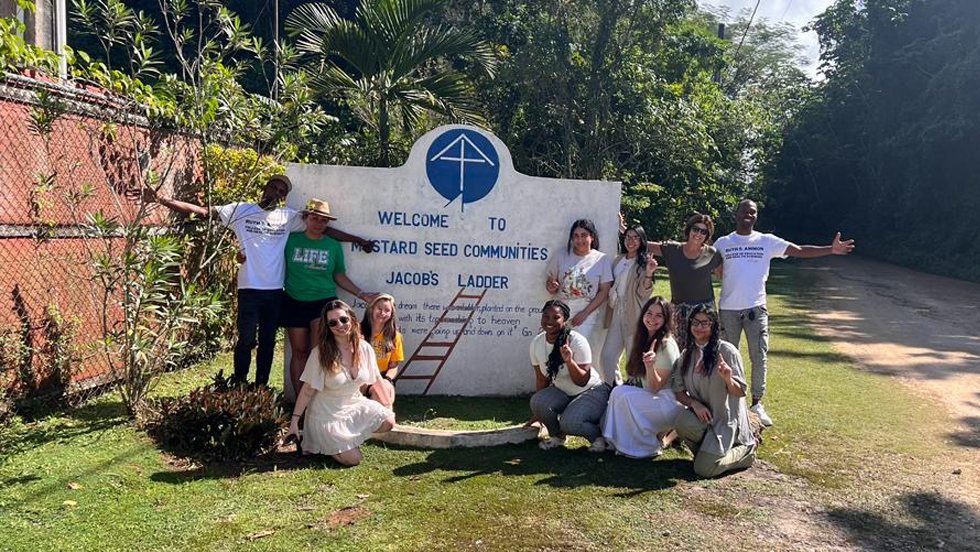
This January, graduate students and faculty traveled to Jamaica to gain a global perspective on the field of speech-language pathology.
Ianthe Dunn-Murad, ScD, audiology clinical program director, and Miriam Velsor, clinical supervisor of speech-language pathology, led the trip.
The 3-credit, three-week course, open to students in the master’s program in speech-language pathology with demonstrated clinical experience, began with four synchronous online classes of learning about global speech-language pathology and Jamaican culture. At the end of week two, students and faculty began their trip to Jamaica.
The group traveled to Kingston for one week to meet and work with residents of Mustard Seed Communities, a home for children with disabilities. Students and faculty provided services to individuals with communication disorders and exchanged knowledge with local professionals and caregivers. While in Jamaica, students also had the opportunity to experience Jamaican culture, including trying different cuisines, enjoying the tropical landscape and visiting national landmarks.
In Kingston, students traveled to multiple Mustard Seed Communities locations with Dr. Dunn-Murad and Velsor to further their knowledge of global speech-language pathology and develop their clinical skills.
Gaining a Global Perspective
Students gained a global perspective on the field of speech-language pathology. Under the guidance of faculty, students learned how to provide evidence-based assessment and intervention in a diverse cultural context by working directly with the children of Mustard Seed Communities.
“I learned so much on this trip that I would never be able to learn in any externship site here in the U.S., and I will cherish that for the rest of my life,” one student said of the trip.
The group began their trip at Mary’s Child, one of the Mustard Seed Communities residences. Students also spent time at Mustard Seed Communities location Sophie’s Place, nestled in the mountains of Kingston.
Student Nancy Arriola described, “On our way to Sophie’s Place, we took in the mesmerizing views of the mountains, including pops of bright colors from its abundance of bougainvillea flowers growing on bushes and trees. Once we arrived, we had the opportunity to perform informal speech and language evaluations, as well as hearing screenings on students from the Little Angels School. Through this experience, we learned about cultural and dialectical differences as we modified assessments to fit these children’s cultural backgrounds.”
Students also traveled to the University of Technology, Jamaica, and met the head coordinator, Carol Hutchinson, of the Rehabilitation Center for Children with Exceptionalities, also a part of the Mustard Seed Communities.
One student said the trip to Jamaica impacted their future as a clinician.
“This experience showed me who I want to be as a future clinician. It exposed me to so many different aspects of what speech and language therapy is and the opportunities I have that a textbook or classroom setting would not have exposed me to.”
At the end of week three, students and faculty said goodbye to their Mustard Seed colleagues and returned to campus for a final class to unpack the overall experience. By participating in this course, students developed global perspectives and comparative knowledge of world systems that will translate to their practice in the United States.